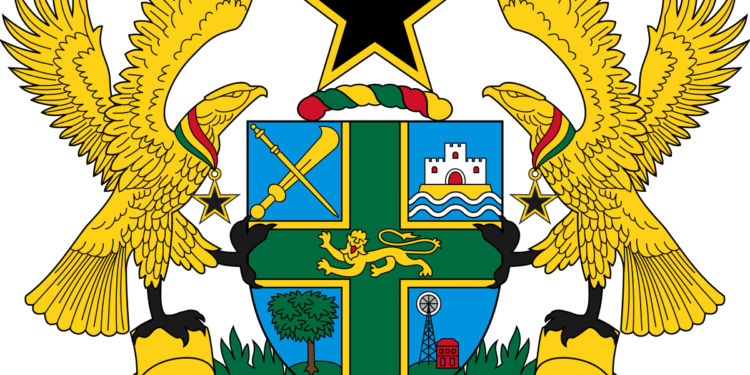Introduction
Ghana’s religious environment, particularly its dynamic Christian population, has always served as a spiritual and cultural forum. In recent decades, however, there has been a gradual increase in religious disinformation, especially doomsday prophecies, which have raised concerns about misinformation, public panic, and potential threats to national integration. Prophetic declarations made by self-styled religious figures—especially during popular events like the annual 31st Night services—increasingly intersect with politics, digital media, and social anxiety. This article interrogates the implications of the spread of unverified divine messages in the social media era for public trust, community cohesion, and democratic stability in Ghana.
Religious Disinformation in Context
Christian prophetism in Ghana has become increasingly popular, attracting many with claims of divine insight. The 31st Night prophecies, made on New Year’s Eve, are now central to this tradition. These prophecies, often apocalyptic in nature, are increasingly viewed as disinformation, especially when they forecast disasters, assassinations, or political instability.
Several religious figures have made headlines on various occasions with a wide range of prophetic declarations, including some 2025 prophecies that predicted economic growth for Ghana. Some of these claims are hopeful, while others create panic or reinforce fear-based narratives. This duality reveals the fine line between faith-based messages and disinformation that can distort public perception.
Religious disinformation does not exist in isolation. It contributes to a broader ecosystem of misinformation already strained by political and ethnic conflicts, particularly during election periods. The 2024 Global Risk Report predicts that if left unchecked, misinformation could compromise democratic processes and national stability.
Technology, Social Media, and the Spread of Disinformation
The emergence of digital platforms like Facebook and X (formerly Twitter) has made it easier to disseminate religious messages, many of which remain unverified. The shift from professional fact-checkers to user-driven content moderation has allowed false information to spread more easily, making it harder to distinguish between credible prophecy and dangerous speculation.
On December 31, 2024, multiple prophets made predictions of major changes for Ghana, continuing a trend that authorities have attempted to control. The Ghana Police Service warned against prophecies that may instil fear in the public, emphasising the importance of public safety. Despite these warnings, 31st Night events continue to attract significant attention and wield substantial influence.
Religious organisations such as the Ghana Pentecostal and Charismatic Council (GPCC) have also supported national efforts to address misinformation, especially on issues related to public health and national development. These initiatives promote factual communication and aim to prevent the manipulation of vulnerable audiences.
Security and Electoral Impacts of Misinformation
Misinformation—including religious and political forms—poses a major threat to national security, particularly during election periods. False narratives can distort public perception, fuel intergroup tensions, and potentially incite unrest. In response, community education programs have emerged to teach citizens how to detect and counter misinformation before it escalates into violence.
The 2024 general election saw a spike in religious prophecies, with both local and international religious leaders predicting the presidential election results. These predictions included projected vote percentages for both ruling and opposition candidates. While some predictions aligned with actual results, others did not, underscoring the unverifiable nature of such claims. In a highly religious society like Ghana, these unverified narratives can significantly influence public opinion and undermine electoral processes and national security.
Cybersecurity adds another layer of complexity. Disinformation is spread via hacked social media accounts, fake news platforms, and manipulated digital content. This situation calls for immediate efforts to boost digital literacy and data protection awareness. Citizens must be educated on how to recognise phishing schemes, protect their personal information, and avoid spreading deceptive content.
Community and Institutional Responses
Ghana’s response to disinformation involves multiple stakeholders. Community-led interfaith programs have become essential components of peacebuilding, particularly during sensitive election periods. These programs promote religious tolerance and help prevent religiously framed disinformation from escalating into sectarian violence.
The Inter-Party Dialogue Committee (IPDC), which includes political representatives, civil society members, and religious leaders, plays a key stabilising role. By encouraging dialogue and condemning political violence, the IPDC reduces the risks associated with sensationalist or polarising campaign rhetoric.
Government institutions like the National Commission for Civic Education (NCCE) have partnered with the IPDC to educate citizens on topics such as vote-buying, electoral transparency, and media literacy. In November 2024, one such initiative was launched in Abuakwa North, involving participants from major religious institutions, including the Presbyterian and Seventh-Day Adventist Churches. These initiatives emphasise the importance of informing religious leaders about the boundaries of public communication. The Ghana Police Service has also issued public statements stressing that responsible communication helps prevent the negative consequences of sensational prophecies.
Conclusion
Religious disinformation in Ghana is a complex issue that intersects with faith traditions, media systems, politics, and national security. While spirituality holds a central place in Ghanaian culture, it cannot justify the unchecked spread of sensational prophecies that distort reality, incite panic, and undermine democratic institutions.
To effectively combat this threat, Ghana must adopt cross-sectoral strategies that combine community education, interfaith collaboration, digital literacy, and policy enforcement. Religious leaders have a responsibility to exercise their spiritual authority with care, ensuring their messages do not promote fear, misinformation, or conflict. Protecting public trust through truthfulness and transparency must remain a national priority, especially as Ghana approaches future elections and continues its digital transformation.
References
(1) https://www.cigionline.org/articles/disinformation-is-undermining-democracy-in-west-africa/
(2)https://www.journalofcontemporaryministry.com/index.php/jcm/article/download/159/147/58
(3)https://www.researchgate.net/publication/326901780_Media_Perspectives_on_Fake_News_in_Ghana
(4) https://penplusbytes.org/wp-content/uploads/2018/05/FAKE-NEWS-STUDY.pdf
(5) https://cisanewsletter.com/index.php/leveraging-tradition-and-religion-to-fight-mis-disinformation/
(6) https://journals.rudn.ru/literary-criticism/article/view/41364
(9) https://waccglobal.org/webinar-presents-tools-strategies-to-tackle-disinformation/
(11) https://www.opengovpartnership.org/members/ghana/commitments/GH0054/
(14) https://www.modernghana.com/news/1206922/doomsday-prophecies-who-elected-you-over-my-life.html
(15) https://sojo.net/articles/religious-groups-are-targets-disinformation-they-can-also-help-stop-it
(16) https://www.dailymailgh.com/doomsday-prophecies-must-stop-ghana-pentecostal-council-backs-police/
(17) https://ghana.un.org/en/272848-journalists-trained-kumasi-combat-hate-speech-and%C2%A0misinformation
(18) https://mfnn.org/case_study/multi-faith-relationship-building-in-ghana/
(19) https://academic.oup.com/afraf/article/121/483/161/6575724
(21) https://www.dw.com/en/ghana-warns-against-alarmist-new-year-prophecies/a-64247116
(22) https://www.modernghana.com/news/1392285/the-viral-threat-how-misinformation-is-ghanas.html
(23) https://www.modernghana.com/news/907669/focus-on-africa-ghanas-doomsday-prophet-causes-out-rage.html
(24) https://pmc.ncbi.nlm.nih.gov/articles/PMC10106894/
(25) https://www.thinkglobalhealth.org/article/countering-covid-19-misinformation-africa
(26) https://citinewsroom.com/2019/01/national-peace-council-condemns-doomsday-prophecies-calls-for-calm/
(27) https://journals.co.za/doi/10.36615/jcsa.v42i2.1500
(28) https://www.youtube.com/watch?v=FWzwqlIQTuU
(31) https://www.gbcghanaonline.com/commentary/be-wary-of-31st-night-doomsday-prophecies/2021/






























